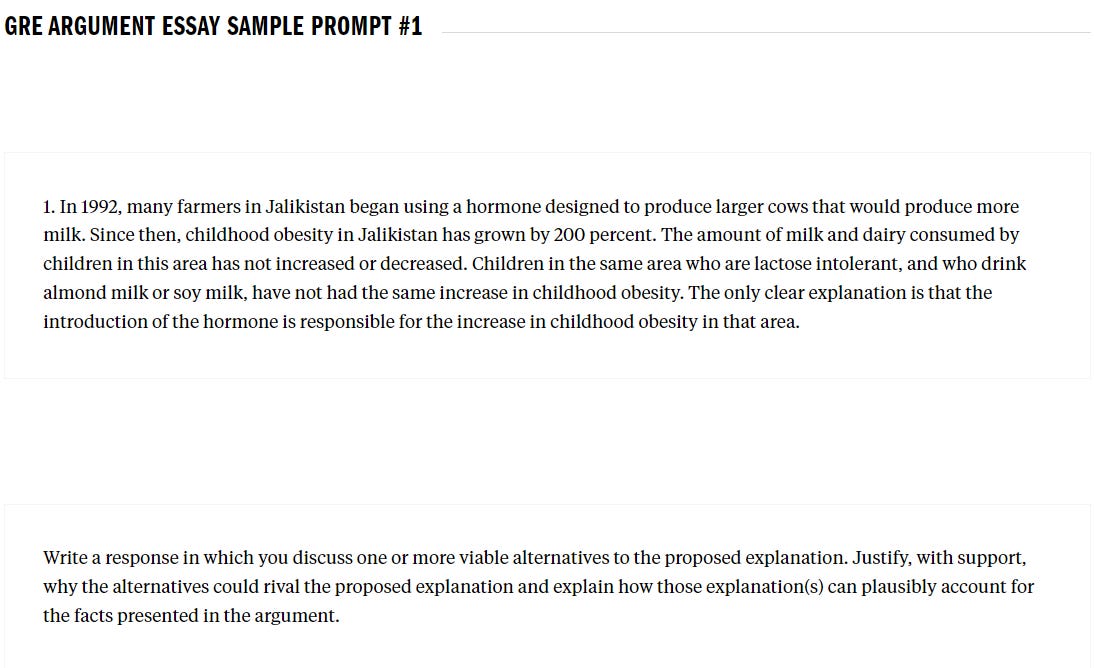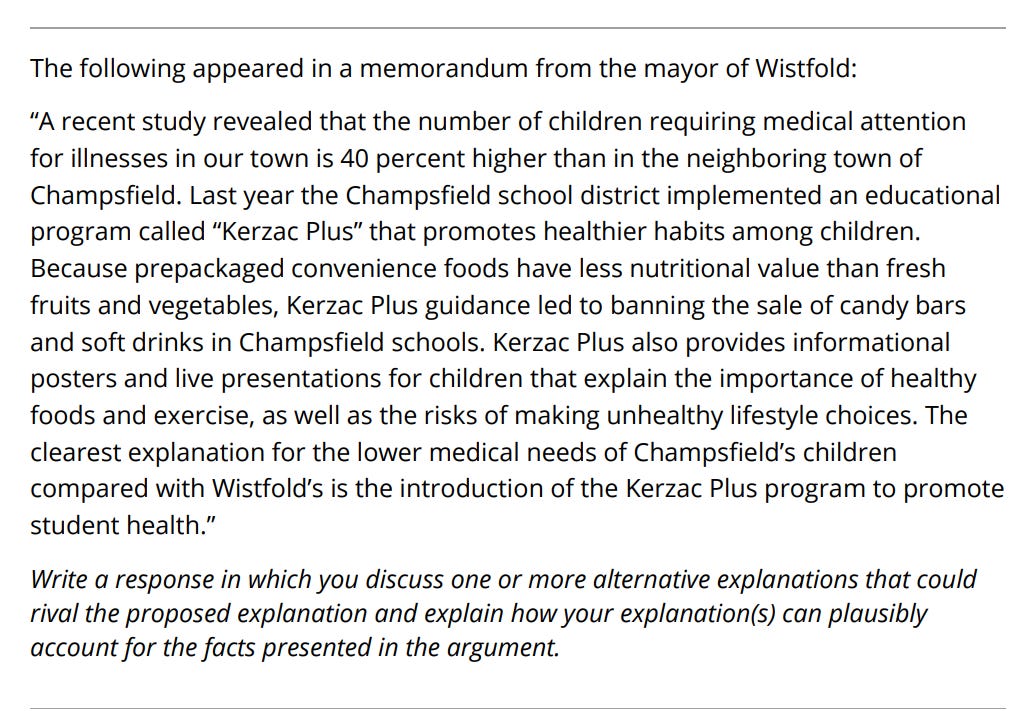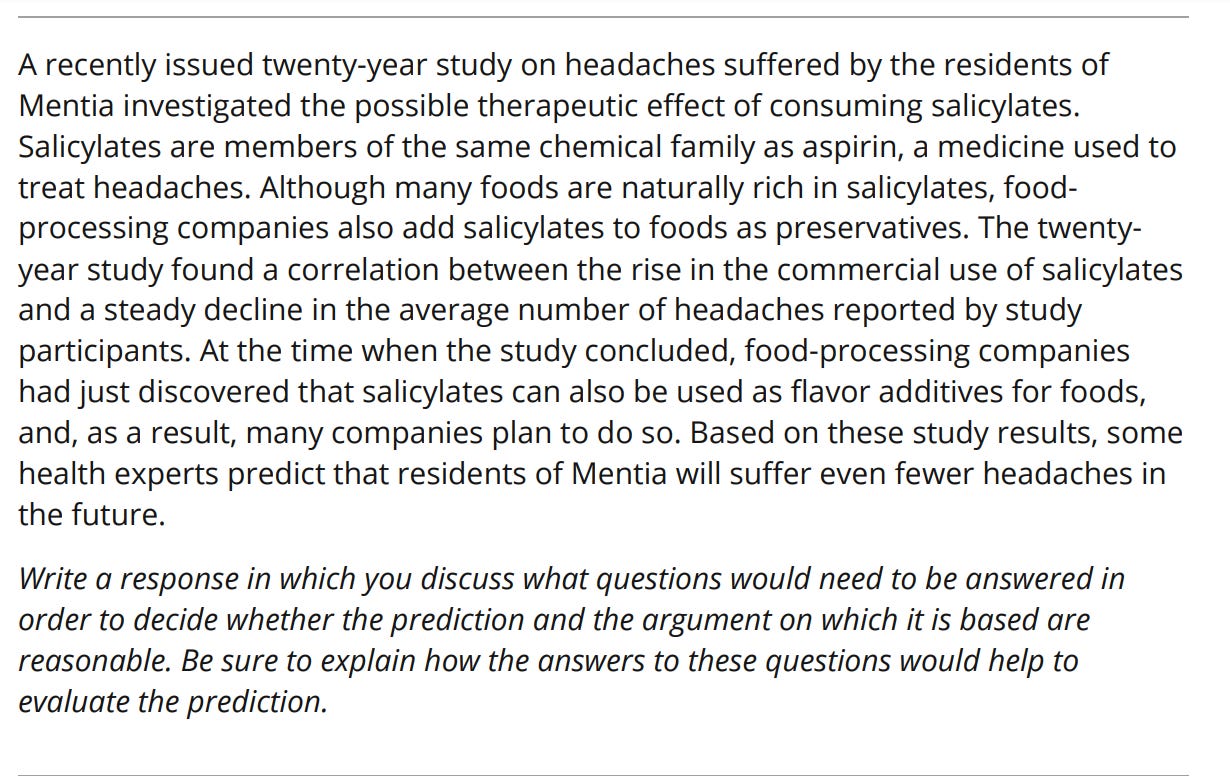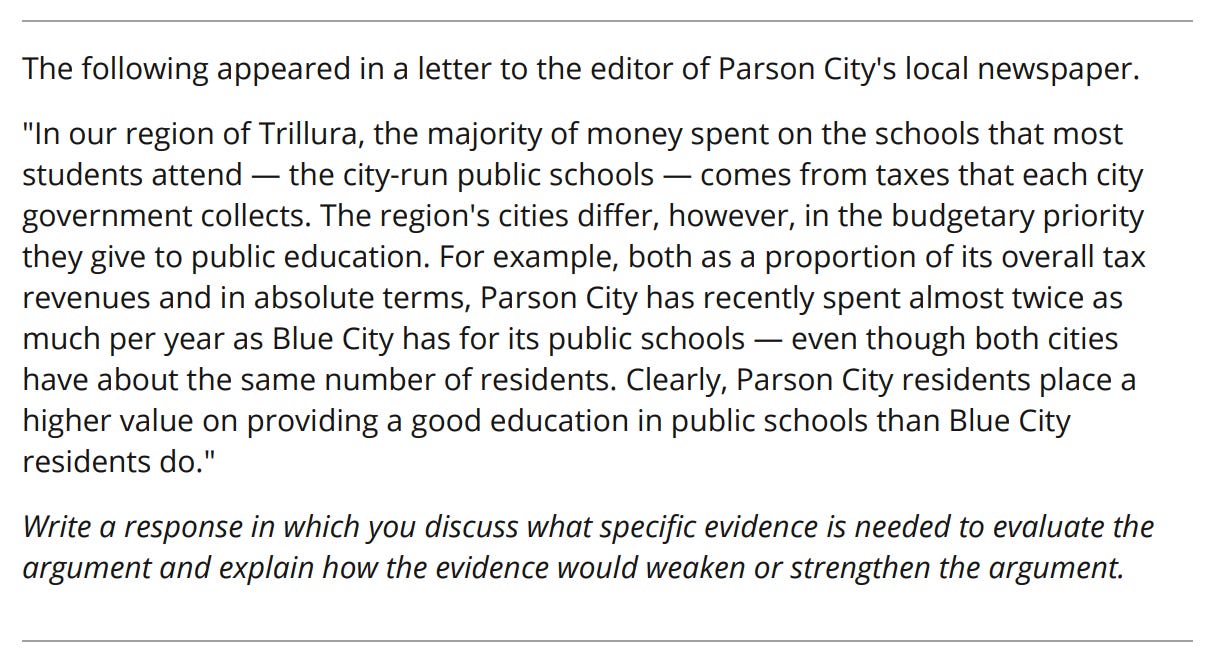Since I’ve talked everyone’s ears off the last few days I’ll keep this short and would like to wish everyone a Happy New Year!
It continues to be a tumultuous time, and it’s rather hard to look at things from an optimistic lens sometimes, but always consider the meaningful things in your life that matter most.
So I do wish that the coming year goes well for you all!
Now, previously I wanted to figure out how to set up a system to engage readers in studies, but that has been a bit difficult.
Since figuring out perspectives is key to reading studies, as well as assessing information, I thought it would be interesting to look at a few exercises in argumentative reasoning.
In the US one test used for admission into graduate school is called a Graduate Record Examination (GRE), and is used to partially weigh one’s acceptance into a graduate program, along with their past experience and and undergraduate requirements.
One section of the GRE requires a written assessment, and here people are given two prompts; an issue prompt and an argument prompt.
The prompt I was most interested in is the argument prompt. With this prompt, a scenario is given usually with respect to two groups. Information may be provided for one group, and may be extrapolated to another.
Regardless, someone is presented with an argument and has to see whether the argument is sound or if there are issues with the argument.
One example is the following found on Kaplan’s website:
In the above example the prompt is presented in the first paragraph while the person is asked to write a response in the second by following what is being asked.
For example, in the above prompt someone is asked to look for other alternatives that may explain the situation. In some one may need to point out flaws in an argument, or
Note that these prompts aren’t intended to be answered with background information on the subject as the GRE is given to anyone entering into graduate school whether in a hard science, soft science, or even a gender studies program.
So when examining this question it’s not necessary to have a scientific lens or background, but more to look at the information that is given and see if it makes sense or relies on faulty logic. For example, the above prompt is presented with a correlation vs causation scenario, and one must argue whether the reasoning is sound.
Again, this is intended to just be a fun exercise for people to flex their reasoning skills.
Here are three more that people can look at if interested from ETS’s website (the creators of the GRE):
ETS Prompt #1
ETS Prompt #2
ETS Prompt #3
AGAIN, these are just something that may be a little fun to look out. If people find these topics interesting it may be something that may pop every now and then.
So feel free to discuss these prompts in the comments, or not. 🤷♂️
But anyways, I do wish you all have a Happy New Year! Let’s hope 2023 finds us happiness and peace in whichever way possible!









I have an alternative explanation that works for ALL of the above examples:
The explanation is: anti-vaxx propaganda and antiscience aggression is to blame
Happy new year!
So like the guys with the real milk also eat a lot of cookies and icecream...
...and the soy boys group eats a lot of, well, soy